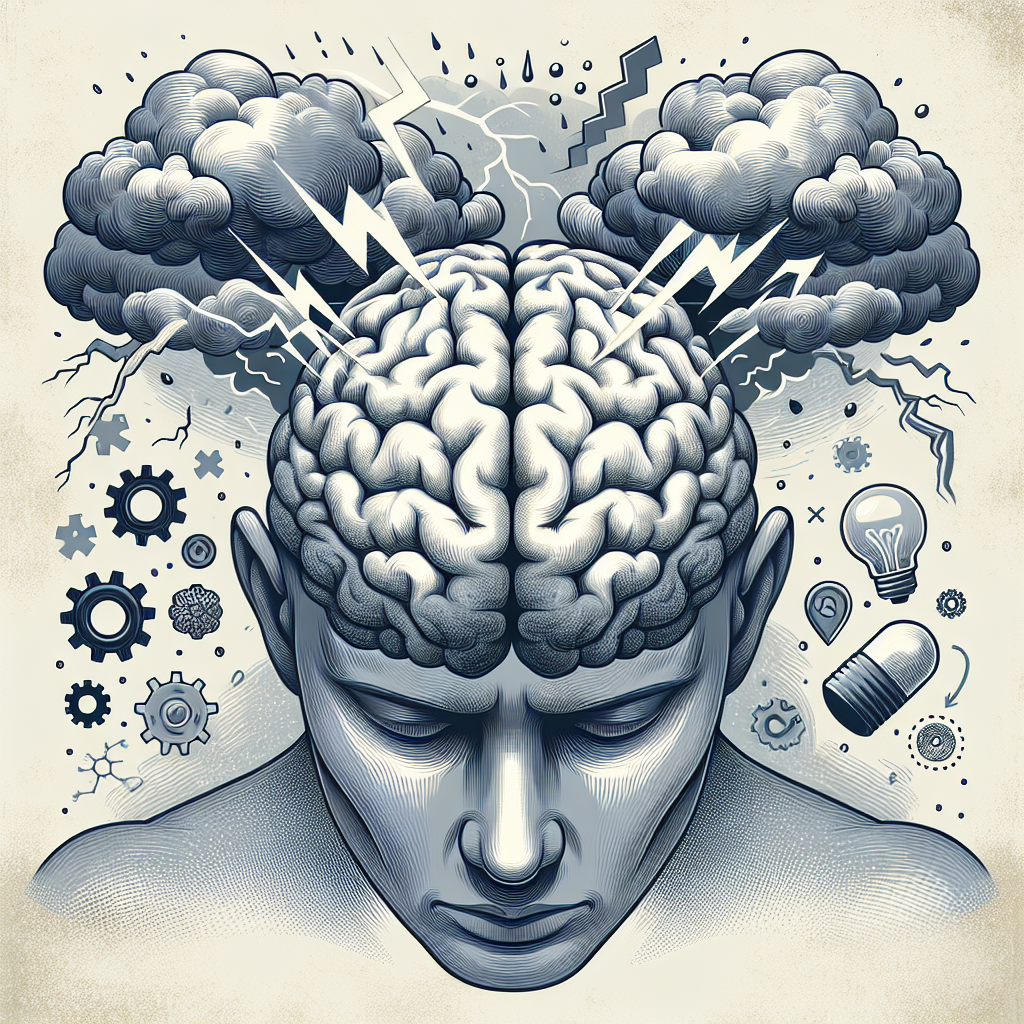In our fast-paced world, stress often feels like an everyday occurrence—like a constant companion that we can’t shake off. However, chronic stress can have profound effects on our cognitive abilities. In this article, we’ll explore how persistent stress impacts the brain, affecting memory, concentration, and overall cognitive function.
What is Stress?
Stress is a natural response to perceived threats or challenges. When we encounter a stressful situation, our body triggers the “fight or flight” response, releasing hormones like cortisol and adrenaline. While this response can be beneficial in short bursts, chronic stress can lead to various health problems, particularly concerning cognitive functions.
The Brain’s Response to Stress
The brain plays a pivotal role in how we experience and respond to stress. The hypothalamus, a small region at the base of the brain, activates the pituitary gland, which in turn stimulates the adrenal glands to release stress hormones. Chronic stress can lead to an overexposure to these hormones, which can have significant repercussions on brain health.
How Chronic Stress Affects Cognitive Abilities
1. Memory Impairment
One of the most noticeable effects of chronic stress is on memory. Research shows that prolonged exposure to cortisol can impair both short-term and long-term memory. This occurs because high cortisol levels can damage the hippocampus, the area of the brain responsible for storing and recalling memories.
2. Decreased Concentration
Chronic stress can scatter our thoughts, making it tough to focus on tasks at hand. This is partly due to increased anxiety levels, which can lead to a decreased ability to concentrate. A study indicated that individuals under chronic stress frequently reported difficulties in maintaining their attention, ultimately affecting productivity.
3. Impaired Decision-Making
The prefrontal cortex, which is crucial for decision-making, is adversely affected by chronic stress. When this area of the brain becomes compromised, it can lead to impulsive decisions and difficulty in weighing options effectively. Individuals may find themselves regretting choices made under stress, as the clarity of thought diminishes.
4. Difficulty with Problem-Solving
Problem-solving abilities may also suffer due to chronic stress. When the brain is constantly on high alert, it becomes challenging to engage in creative thinking and develop innovative solutions. Stress can narrow our perspective, making it harder to see the bigger picture when approaching complex problems.
Long-Term Neurological Implications of Chronic Stress
Chronic stress not only affects cognitive abilities but can also lead to long-term neurological changes. Over time, the brain can undergo structural changes, such as reduced volume in the hippocampus and prefrontal cortex. These changes can contribute to conditions like anxiety, depression, and memory disorders.
Managing Stress to Protect Cognitive Function
Fortunately, there are effective strategies to manage stress and protect cognitive function:
- Mindfulness and Meditation: These practices can help you develop a greater awareness of your thoughts and feelings, reducing anxiety and improving concentration.
- Regular Exercise: Physical activity increases endorphin levels, which can boost mood and brain health. Aim for at least 30 minutes of moderate exercise most days.
- Healthy Diet: Consuming a balanced diet rich in antioxidants, omega-3 fatty acids, and vitamins can support brain health.
- Sleep Hygiene: Ensure you are getting enough restorative sleep. Aim for 7-9 hours each night to help your brain recover.
- Social Connections: Maintaining strong social ties can buffer against stress. Communicating with supportive friends and family can alleviate feelings of stress.
Conclusion
Chronic stress is a hidden adversary that has profound effects on our brain and cognitive abilities. From memory impairment to decreased concentration and impaired decision-making, the repercussions are far-reaching. Understanding the connection between stress and brain health is essential for taking control of our mental well-being. By implementing effective stress management techniques, we can mitigate these effects and cultivate a healthier mind.
Frequently Asked Questions (FAQs)
1. What are signs of chronic stress?
Common signs of chronic stress include continual fatigue, irritability, difficulty concentrating, changes in sleeping patterns, and physical symptoms such as headaches and stomach issues.
2. Can stress lead to serious mental health issues?
Yes, prolonged stress can contribute to anxiety disorders, depression, and other mental health issues. It’s crucial to address stress proactively to support overall mental health.
3. How long does it take to recover from chronic stress?
The recovery timeline varies for each individual and depends on the strategies implemented to manage stress. Some may experience relief in a matter of weeks, while others may take months. Consistent practices like mindfulness or therapy can expedite recovery.
4. Are there any supplements that can help with stress management?
Some supplements, such as magnesium, omega-3 fatty acids, and adaptogenic herbs like ashwagandha, can support stress management. However, consulting with a healthcare provider is advisable before starting any new supplement regimen.
5. Can lifestyle changes really make a difference in stress levels?
Absolutely! Lifestyle changes, such as regular physical activity, a balanced diet, adequate sleep, and strong social connections, have been shown to significantly reduce stress levels and enhance cognitive function.





